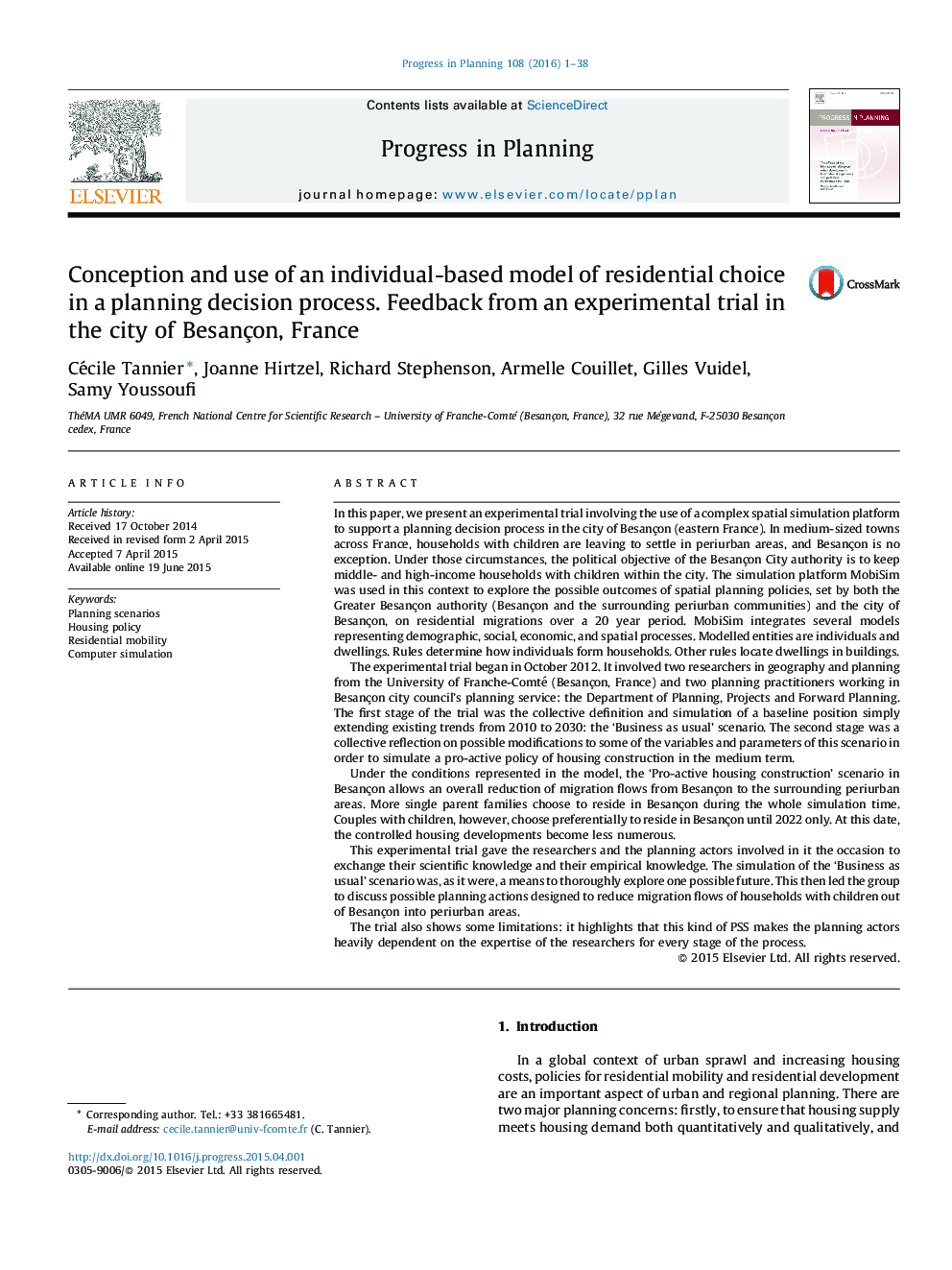| کد مقاله | کد نشریه | سال انتشار | مقاله انگلیسی | نسخه تمام متن |
|---|---|---|---|---|
| 1050796 | 1484736 | 2016 | 38 صفحه PDF | دانلود رایگان |
• A spatial simulation platform is used for an experimental trial in a French city.
• The objective is to explore the possible outcomes of spatial planning policies.
• We first collectively define and simulate a ‘Business as usual’ scenario.
• Then we simulate a ‘Pro-active housing construction’ scenario in the centre city.
• This allows an overall reduction of migration flows from the city to periurban areas.
In this paper, we present an experimental trial involving the use of a complex spatial simulation platform to support a planning decision process in the city of Besançon (eastern France). In medium-sized towns across France, households with children are leaving to settle in periurban areas, and Besançon is no exception. Under those circumstances, the political objective of the Besançon City authority is to keep middle- and high-income households with children within the city. The simulation platform MobiSim was used in this context to explore the possible outcomes of spatial planning policies, set by both the Greater Besançon authority (Besançon and the surrounding periurban communities) and the city of Besançon, on residential migrations over a 20 year period. MobiSim integrates several models representing demographic, social, economic, and spatial processes. Modelled entities are individuals and dwellings. Rules determine how individuals form households. Other rules locate dwellings in buildings.The experimental trial began in October 2012. It involved two researchers in geography and planning from the University of Franche-Comté (Besançon, France) and two planning practitioners working in Besançon city council's planning service: the Department of Planning, Projects and Forward Planning. The first stage of the trial was the collective definition and simulation of a baseline position simply extending existing trends from 2010 to 2030: the ‘Business as usual’ scenario. The second stage was a collective reflection on possible modifications to some of the variables and parameters of this scenario in order to simulate a pro-active policy of housing construction in the medium term.Under the conditions represented in the model, the ‘Pro-active housing construction’ scenario in Besançon allows an overall reduction of migration flows from Besançon to the surrounding periurban areas. More single parent families choose to reside in Besançon during the whole simulation time. Couples with children, however, choose preferentially to reside in Besançon until 2022 only. At this date, the controlled housing developments become less numerous.This experimental trial gave the researchers and the planning actors involved in it the occasion to exchange their scientific knowledge and their empirical knowledge. The simulation of the ‘Business as usual’ scenario was, as it were, a means to thoroughly explore one possible future. This then led the group to discuss possible planning actions designed to reduce migration flows of households with children out of Besançon into periurban areas.The trial also shows some limitations: it highlights that this kind of PSS makes the planning actors heavily dependent on the expertise of the researchers for every stage of the process.
Journal: Progress in Planning - Volume 108, August 2016, Pages 1–38
